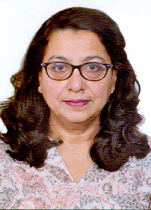Chair: Anne-Emanuelle Birn
 Professor Birn’s research explores the history and political economy of international/global health, focusing on Latin America. Her work has appeared in African, Asian, European, Latin American, and North American journals and presses. Her books include: Marriage of Convenience: Rockefeller International Health and Revolutionary Mexico (Rochester, 2006); Comrades in Health: US Health Internationalists, Abroad and at Home (Rutgers, 2013); Textbook of International Health: Global Health in a Dynamic World (Oxford, 2009); and Textbook of Global Health (Oxford, 2017). In 2014 she was named among the top 100 Women Leaders in Global Health and in 2018 to the List of Canadian Women in Global Health.
Professor Birn’s research explores the history and political economy of international/global health, focusing on Latin America. Her work has appeared in African, Asian, European, Latin American, and North American journals and presses. Her books include: Marriage of Convenience: Rockefeller International Health and Revolutionary Mexico (Rochester, 2006); Comrades in Health: US Health Internationalists, Abroad and at Home (Rutgers, 2013); Textbook of International Health: Global Health in a Dynamic World (Oxford, 2009); and Textbook of Global Health (Oxford, 2017). In 2014 she was named among the top 100 Women Leaders in Global Health and in 2018 to the List of Canadian Women in Global Health.
Speakers
 Marine Al Dahdah, "From Ghana to Bihar, Saving the Global South’s Mothers with a Digital Empire"
Marine Al Dahdah, "From Ghana to Bihar, Saving the Global South’s Mothers with a Digital Empire"
With the widespread use of mobile phones in the Global South, digital tools are attracting growing interest from international aid actors as well as local governments ; positioning digital technology as an essential driver of economic growth and an obvious solution to many social problems. Through the study of a global mHealth program deployed in Ghana and India, this paper analyzes how digital technology organizes specific relations between public health systems, beneficiaries and an unavoidable third party: digital technology providers. Indeed, as they are initiated by multiple actors from the digital economy, such digital health policies revive old questions about technological development, relations between the market sector and states, and the role of knowledge and techniques in inequalities of health. Finally, it also illustrates the way in which digital technology inscribes profound "global forces" in local sites across Asia and Africa.
Marine Al Dahdah is a sociologist and a permanent research fellow at CNRS, based in CEMS-EHESS. For several years, she has been working on the use of digital technologies to improve maternal health and health coverage in South Asia and Sub-Saharan Africa. Her research pays attention both to institutions and individuals involved in and impacted by digital health deployed in a context where access to healthcare is far from being universal. Based on case studies in India, Kenya and Ghana, her research unpacks the major alterations to welfare states, health services and patients that occur throughout this process of digitalisation.
 Rajiv K. Mishra, The Appropriated Body: Biometrics Regime, the Digital State and Healthcare in Contemporary India.
Rajiv K. Mishra, The Appropriated Body: Biometrics Regime, the Digital State and Healthcare in Contemporary India.
The sheer size of Indian population and its presence in a gigantic biometrics database has made possible the appropriation and control of millions of bodies on everyday basis. It is being done at different levels by players operating the Digital State, with markets based approach aiming to provide governance and development entitlements, healthcare being one among them (Mishra, 2019; Adrian and Baluch, 2019). However, at the receiving end of this appropriative force are the 22% below poverty line (BPL) population, with around 300 million people living at less than 1.25 dollars per day. These tend to be bodies facing a double jeopardy of historical-social-economic inequalities; and, negotiating the biometric means of accessing healthcare entitlements. More specifically, this refers to a arduous process of proving one’s mistrusted self to be able to enter the very process of availing medical treatment. Based on qualitative fieldwork in Jharkhand and Delhi, the paper tries to argue that how the very process of biometrics based access to healthcare appropriates the bodies of BPL families even before they get any medical treatment.
Rajiv Mishra is trained with interdisciplinary backgrounds in Computer Science, Internet Engineering, Sociology and STS Studies. In the final phase of thesis submission on “Large Information Systems and Development: Unique Identity (UID) and Health Informatics In Select States of India”. Moreover, working closely with fellow colleagues from India and France in the field of STS to understand nuanced aspects of digital technologies and development from the global south perspective. Other than academic work, I love to sketch-paint, do poetry and listen to classics.
 Nora Kenworthy, "When platforms for the poor are not pro-poor platforms: crowdfunding and technological determinants of health"
Nora Kenworthy, "When platforms for the poor are not pro-poor platforms: crowdfunding and technological determinants of health"
Medical crowdfunding is one of a number of ‘feel-good,’ technologies that have seen astronomic growth in recent years. As technologies like these are marketed (and embraced) as tools for addressing health disparities, research must critically assess their real impacts on health and social inequities. Crowdfunding provides a useful case example for understanding how a platform that appears open to everyone becomes a tool of privilege and reinforces neoliberal dogmas of meritocracy and individualization. This talk draws on several interrelated research projects to demonstrate how medical crowdfunding fuels health disparities, but is also indicative of broader marketing of technologic fixes for social determinants of health. Examining crowdfunding alongside other examples of health technologies enables us to recognize broader linkages between technology and health disparities. While some tech may be useful in addressing the social determinants of health, we must remain equally aware of how technological determinants of health exacerbate health disparities.
Nora Kenworthy is an Associate Professor in the School of Nursing and Health Studies at the University of Washington (UW) Bothell, and Adjunct Associate Professor in the Departments of Anthropology and Global Health at UW Seattle. Her research explores the impacts of charitable and philanthropic health initiatives, and the politics of global health programming. She is the author of Mistreated: The Political Consequences of the Fight Against AIDS in Lesotho and co-editor of Case Studies in Corporations and Global Health Governance: Impacts, Influence, and Accountability. Kenworthy's recent research examines the use of crowdfunding for personal healthcare expenses in the US and abroad, and its implications for health equity, financing, and policy making.
Discussant: Jashodhara Dasgupta
 Jashodhara Dasgupta is the Executive Director of the National Foundation for India, a grant-making organization that works on social justice issues. She is also a public health researcher and advocate on women's rights, who has worked for over 30 years in the voluntary sector. Jashodhara has co-founded civil society organizations including SAHAYOG, which she led for 12 years. She has anchored many civil society advocacy networks as well as served on government and academic committees, both nationally and internationally. She was Vice-Chairperson of the Lancet-University of Oslo Commission on Global Governance for Health (2011-2014).
Jashodhara Dasgupta is the Executive Director of the National Foundation for India, a grant-making organization that works on social justice issues. She is also a public health researcher and advocate on women's rights, who has worked for over 30 years in the voluntary sector. Jashodhara has co-founded civil society organizations including SAHAYOG, which she led for 12 years. She has anchored many civil society advocacy networks as well as served on government and academic committees, both nationally and internationally. She was Vice-Chairperson of the Lancet-University of Oslo Commission on Global Governance for Health (2011-2014).
